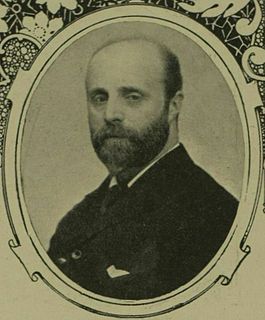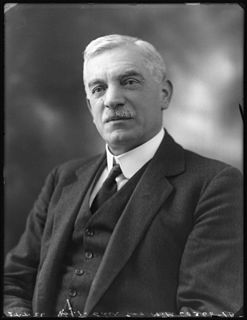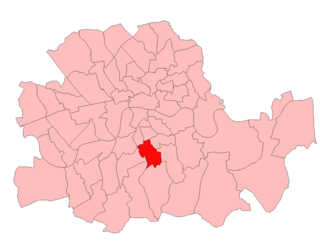
The 1886 United Kingdom general election took place from 1 July to 27 July 1886. It resulted in a major reversal of the results of the 1885 election as the Conservatives, led by Lord Salisbury in an electoral pact with the breakaway Unionist wing of the Liberals led by Lord Hartington and Joseph Chamberlain. The new Liberal Unionist party gave the Conservatives their parliamentary majority but did not join them in a formal coalition.

James Robert Wallace, Baron Wallace of Tankerness,, FRSE is a British politician and former leader of the Liberal Democrats in the House of Lords. He was formerly Leader of the Scottish Liberal Democrats, Member of Parliament (MP) for Orkney and Shetland, Member of the Scottish Parliament (MSP) for Orkney, the first Deputy First Minister of Scotland in the Scottish Executive and Advocate General for Scotland.

Sir Arthur Cecil Tyrrell Beck was a British Liberal Party politician.

John William Gulland was a British Liberal Party politician.

William Hayes Fisher, 1st Baron Downham, PC, KStJ was a British Conservative Party politician. He held office as President of the Local Government Board and Minister of Information in David Lloyd George's First World War coalition government.
The King's Lynn by-election, 1943 was a by-election held for the British House of Commons constituency of King's Lynn in Norfolk on 12 February 1943. The seat had become vacant when the Conservative Member of Parliament (MP) Somerset Maxwell had died in December 1942 from wounds received at the Battle of El Alamein.
Sir Leslie Frederic Scott, KC was a Conservative Party politician in the United Kingdom, and later a senior judge.
The Kingston upon Hull Central by-election, 1919 was a parliamentary by-election held for the British House of Commons constituency of Kingston upon Hull Central on 29 March 1919. The by-election was the fifth to be held during the 1918-1922 parliament.
The Argyllshire by-election, 1920 was a parliamentary by-election held for the British House of Commons constituency of Argyllshire on 10 March 1920.
The Edinburgh by-election, 1941 was a parliamentary by-election held on 11 December 1941 for the British House of Commons constituency of Edinburgh Central in Scotland.

(William) Theodore Carr CBE was an English industrialist and Liberal politician.
The Edinburgh South by-election, 1917 was a parliamentary by-election held for the House of Commons constituency of Edinburgh South in Scotland on 12 May 1917.
The Edinburgh East by-election was a Parliamentary by-election. It returned one Member of Parliament to the House of Commons of the United Kingdom, elected by the first past the post voting system.
The Skipton by-election, 1944 was a parliamentary by-election for the British House of Commons constituency of Skipton, Yorkshire held on 7 January 1944.
The Edinburgh South by-election of 1920 was held on 9 April 1920. The by-election was held due to the incumbent Coalition Conservative MP, Charles Murray, being appointed Solicitor General for Scotland. It was retained by Murray.

The Camberwell North West by-election, 1920 was a parliamentary by-election held for the British House of Commons constituency of Camberwell North West in the South London district of Camberwell on 31 March 1920.
The Wrekin by-election of 1920 was held on 7 February 1920. The by-election was held due to the death of the incumbent Coalition Liberal MP, Sir Charles Henry Bt. It was won by the Independent Conservative candidate Charles Frederick Palmer, who was backed by Horatio Bottomley's Independent Parliamentary Group.
The Chichester by-election was a Parliamentary by-election. It returned one Member of Parliament to the House of Commons of the United Kingdom, elected by the first past the post voting system. It was held on 2 June 1905 after the incumbent Conservative MP Lord Edmund Talbot was appointed as Lord Commissioner of the Treasury and he was obliged to stand again in a ministerial by-election. It was retained by Talbot.








